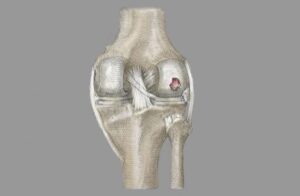In the rapidly evolving landscape of healthcare, Electronic Health Record (EHR) systems have emerged as a transformative force. These digital solutions are not merely technological innovations; they are tools that empower healthcare providers to enhance patient care, streamline operations, and ultimately, save lives. In this comprehensive article, we will explore the multifaceted ways to Enhancing Patient Care with EHR Systems, their impact on patient care, and the future possibilities they offer for healthcare.
The Evolution of Healthcare
Documentation
From Paper Charts to Digital Portfolios
Traditionally, healthcare providers relied on cumbersome paper charts and handwritten notes to document patient information. This approach had its limitations – from illegible handwriting to misplaced files. EHR systems revolutionized this process by providing a secure and standardized platform for storing and managing patient data.
Seamless Data Accessibility
One of the primary advantages of EHR systems is the ease of data accessibility. Physicians, nurses, and other healthcare professionals can access patient records instantly, whether they are in the same facility or miles apart. This seamless access to information translates to quicker decision-making and improved patient care.
Enhancing Patient Care with EHR Systems
Comprehensive Patient Profiles
EHR systems create a comprehensive digital profile for each patient. These profiles include medical history, test results, allergies, medications, and more. Having this wealth of information at their fingertips allows healthcare providers to make informed decisions, reducing the risk of medical errors.
Improved Communication
Effective communication is crucial in healthcare. EHR systems facilitate communication between healthcare professionals through secure messaging systems. This real-time communication ensures that critical information is shared promptly, leading to better coordination of care.
Decision Support Systems
EHR systems often include decision support tools that offer evidence-based recommendations for diagnosis and treatment. These tools assist healthcare providers in making well-informed decisions, resulting in more accurate diagnoses and personalized treatment plans.
Enhanced Patient Engagement
Patients can also benefit from EHR systems. Many EHR platforms offer patient portals where individuals can access their own health records, appointment schedules, and educational materials. This empowerment encourages patients to take an active role in managing their health.
Telemedicine Services
Expanding telemedicine services allows patients to access healthcare remotely. This is especially beneficial for those in rural areas, individuals with mobility issues, or during emergencies.
Personalized Treatment Plans
Tailoring treatment plans to the unique needs and preferences of each patient can greatly improve outcomes. Factors such as age, culture, and lifestyle should be considered when designing care plans.
Streamlining Healthcare Operations
Efficiency in Documentation
With EHR systems, healthcare providers can bid farewell to the days of deciphering handwritten notes. Documentation becomes efficient and legible, reducing the risk of errors and freeing up valuable time for patient care.
Billing and Revenue Cycle Management
EHR systems often integrate billing and revenue cycle management modules. This integration streamlines financial processes, reducing administrative overhead and ensuring that healthcare facilities receive timely payments.
Data Analytics and Population Health Management
EHR systems are treasure troves of healthcare data. Advanced analytics tools can harness this data to identify trends, track disease outbreaks, and improve population health management. Such insights enable healthcare organizations to proactively address health issues within their communities.
Data Security and Privacy
Protecting Patient Information
The transition to digital healthcare solutions has raised concerns about data security and patient privacy. EHR systems, however, are designed with robust security measures. Data encryption, access controls, and audit trails are among the safeguards in place to protect patient information.
Compliance with Regulations
EHR systems must comply with strict healthcare regulations, such as the Health Insurance Portability and Accountability Act (HIPAA) in the United States. Compliance ensures that patient data is handled responsibly and ethically.
Also Read:
- Difference Between Institutional Billing and Professional Billing
- Benefits & Challenges of Telemedicine: Physican Guide
Challenges and Future Prospects
Interoperability
One of the challenges facing EHR systems is interoperability – the ability to seamlessly exchange data between different systems. Efforts are underway to standardize data formats and protocols, fostering better communication between disparate EHR systems.
Artificial Intelligence and Machine Learning
The integration of artificial intelligence (AI) and machine learning (ML) into EHR systems holds immense promise. These technologies can analyze vast datasets to provide predictive analytics, aiding in early disease detection and treatment planning.
Telehealth Integration
The COVID-19 pandemic accelerated the adoption of telehealth. EHR systems are increasingly integrating with telehealth platforms, enabling remote consultations and monitoring, further enhancing patient access to care.
Patient-Centered Care
The future of healthcare lies in patient-centered care. EHR systems are evolving to prioritize patient engagement and satisfaction, tailoring the user experience to meet the unique needs and preferences of individuals.
Conclusion
In conclusion, Electronic Health Record (EHR) systems have become the cornerstone of modern healthcare. These digital solutions empower healthcare providers with comprehensive patient information, improve communication, streamline operations, and enhancing patient care with EHR systems. As EHR systems continue to evolve and overcome challenges, they hold the promise of revolutionizing healthcare even further, ultimately leading to healthier, happier, and more empowered patients.









